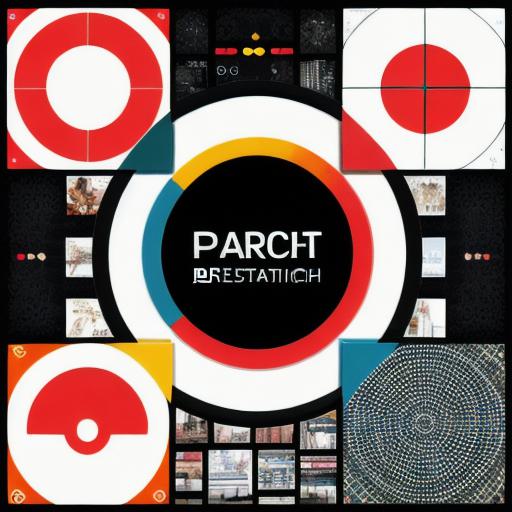What are the key components of marketing knowledge and how can it be effectively applied in business strategies
Marketing is an essential aspect of any business, as it helps organizations understand their target audience and create strategies that will attract and retain customers. However, marketing knowledge can be complex, and it’s not always clear how to apply it effectively. In this article, we will explore the key components of marketing knowledge and provide practical guidance on how to use them in your business strategies.
- Market Research
Market research is the foundation of any successful marketing strategy. It involves gathering information about your target audience, competitors, industry trends, and consumer behavior. This data helps you understand what motivates customers to make purchasing decisions and enables you to create campaigns that will resonate with them.
To conduct effective market research, start by identifying your target audience. Who are they? What are their demographic characteristics, interests, and pain points? Once you have a clear understanding of your target market, you can use various research methods such as surveys, focus groups, and online analytics tools to gather data about their behavior and preferences.
- Branding
Branding is the process of creating a unique identity for your business that sets it apart from competitors. A strong brand helps establish trust with customers, creates a sense of loyalty, and can influence purchasing decisions.
To develop an effective brand strategy, start by defining your company’s values and mission statement. What does your business stand for? What problem does it solve? Once you have a clear understanding of your company’s purpose, create a visual identity that reflects these values and resonates with your target audience. This could include a logo, color scheme, tagline, or other brand elements.

- Content Marketing
Content marketing is the process of creating and sharing valuable content to attract and retain customers. This could include blog posts, social media updates, videos, infographics, or any other type of content that provides value to your target audience.
To create effective content marketing strategies, start by identifying your target audience’s pain points and challenges. What are they struggling with? How can you provide them with solutions through your content? Once you have a clear understanding of what your customers need, create content that addresses these challenges and provides value to them.
- Social Media Marketing
Social media marketing is the process of using social media platforms such as Facebook, Twitter, Instagram, and LinkedIn to promote your business and engage with customers. These platforms provide a unique opportunity to reach a global audience and build brand awareness.
To create effective social media marketing strategies, start by identifying which social media platforms are most popular among your target audience. Once you have identified the right platforms, develop a content strategy that aligns with your overall business goals and resonates with your target market. This could include creating engaging posts, running targeted ads, or collaborating with influencers to reach a wider audience.
- Search Engine Optimization (SEO)
Search engine optimization (SEO) is the process of optimizing your website and content to rank higher in search engine results pages (SERPs). This helps improve your website’s visibility and attract more organic traffic from potential customers.
To create effective SEO strategies, start by identifying the keywords and phrases that your target audience uses when searching for products or services related to your business. Once you have identified these keywords, optimize your website’s content, meta tags, and other elements to ensure they are optimized for search engines. This could include using relevant headings, including keywords in your content, and building high-quality backlinks from other websites.
Case Studies:

Let’s take a look at some real-life examples of how these key components of marketing knowledge have been applied effectively in business strategies:
- Market Research: Airbnb
Airbnb is a prime example of how market research can be used to create successful business strategies. The company began by identifying a gap in the travel industry – affordable, unique accommodation options for budget-conscious travelers. They then conducted extensive market research to understand their target audience’s preferences and created a platform that allowed homeowners to rent out their homes or apartments to travelers.
- Branding: Nike
Nike is an excellent example of how branding can be used to create a strong, recognizable identity for a business. The company’s "Just Do It" slogan has become synonymous with the brand and reflects its values of empowerment, determination, and self-expression. The brand has also created unique logos and visual elements that are instantly recognizable to customers.
- Content Marketing: HubSpot
HubSpot is a prime example of how content marketing can be used to attract and retain customers. The company creates valuable content such as blog posts, eBooks, webinars, and other resources that provide value to its target audience. This content helps establish the company as an authority in the marketing industry and attracts potential customers who are looking for solutions to their marketing challenges.
- Social Media Marketing: Starbucks
Starbucks is an excellent example of how social media marketing can be used to engage with customers and build brand loyalty. The company uses various social media platforms such as Instagram, Twitter, and Facebook to share engaging content, promote new products, and run targeted ads. This has helped the company build a strong following among its target audience and create a sense of community around its brand.
- Search Engine Optimization (SEO): Amazon
Amazon is a prime example of how effective SEO strategies can be used to improve website visibility and attract organic traffic. The company uses various SEO techniques such as keyword research, on-page optimization, link building, and content creation to ensure its website ranks high in search engine results pages. This has helped the company become one of the world’s largest online retailers and attract millions of customers every day.
FAQ:
- What is marketing knowledge?
Marketing knowledge refers to the skills, techniques, and strategies used to promote a business or product. It includes understanding customer behavior, market trends, and developing effective marketing campaigns that resonate with the target audience. - Why is market research important in marketing?
Market research is essential in marketing because it helps organizations understand their target audience’s preferences, needs, and pain points. This information can be used to create marketing strategies that are tailored to the needs of the customers and provide value to them. - What is branding?
Branding refers to the process of creating a unique identity for a business that sets it apart from competitors. A strong brand helps establish trust with customers, creates a sense of loyalty, and can influence purchasing decisions. - What is content marketing?
Content marketing refers to the process of creating and sharing valuable content to attract and retain customers. This could include blog posts, social media updates, videos, infographics, or any other type of content that provides value to your target audience. - What is search engine optimization (SEO)?
Search engine optimization (SEO) refers to the process of optimizing a website and its content to rank higher in search engine results pages. This helps improve a website’s visibility and attract more organic traffic from potential customers. - Can you provide examples of how these key components of marketing knowledge have been applied effectively in business strategies?
Yes, we can provide real-life examples of how these key components of marketing knowledge have been applied effectively in business strategies. For instance, Airbnb used market research to identify a gap in the travel industry and create a platform that allowed homeowners to rent out their homes or apartments to travelers. Nike created a strong brand identity through its "Just Do It" slogan and unique logos. HubSpot used content marketing to attract and retain customers by creating valuable resources such as blog posts, eBooks, webinars, and other content. Starbucks used social media marketing to engage with customers and build brand loyalty by sharing engaging content on various platforms. Amazon used effective SEO strategies to improve its website’s visibility and attract millions of customers every day by using keyword research, on-page optimization, link building, and content creation techniques.




